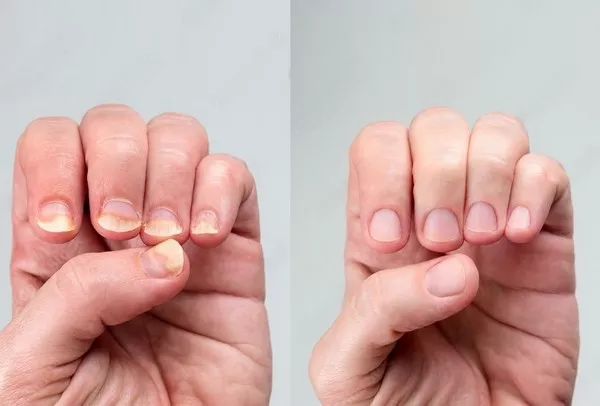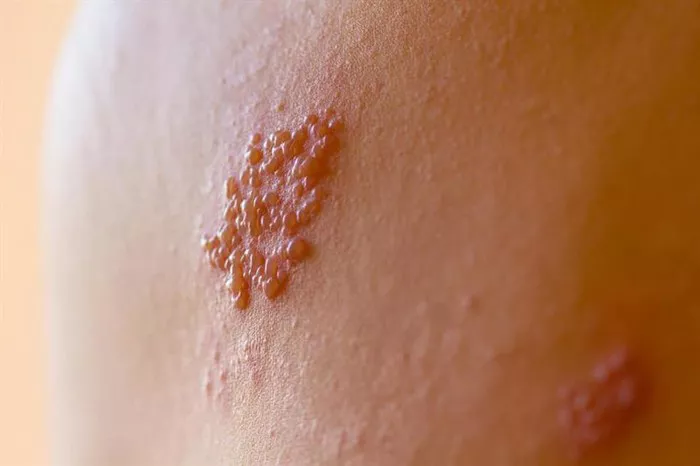Nail psoriasis is a chronic autoimmune condition characterized by the manifestation of psoriatic lesions on the nails, leading to various symptoms such as pitting, discoloration, thickening, and crumbling of the nails. While the exact cause of nail psoriasis remains elusive, researchers have long speculated on the role of genetics in predisposing individuals to this condition. Understanding the hereditary aspects of nail psoriasis is crucial not only for unraveling its underlying mechanisms but also for better management and treatment strategies. In this article, we delve into the intricate relationship between genetics and nail psoriasis, exploring the evidence supporting its hereditary nature and the implications for patients and healthcare providers.
The Genetic Basis of Nail Psoriasis
Psoriasis, including its nail manifestations, has long been recognized as a multifactorial disorder influenced by both genetic and environmental factors. Among the various types of psoriasis, such as plaque psoriasis, guttate psoriasis, and inverse psoriasis, nail psoriasis presents a distinct challenge due to its impact on the aesthetic appearance of the nails and potential functional impairment. Genetic predisposition has emerged as a significant factor contributing to the development of nail psoriasis, with familial aggregation and genetic studies providing compelling evidence for its hereditary nature.
Familial Aggregation and Inheritance Patterns
Observational studies have consistently demonstrated a higher prevalence of psoriasis, including nail involvement, among individuals with affected family members. Familial aggregation, whereby the condition clusters within families, suggests a strong genetic component underlying nail psoriasis. This phenomenon is further supported by twin studies, which have shown a significantly higher concordance rate for psoriasis in monozygotic twins compared to dizygotic twins, indicating a substantial genetic influence.
Moreover, the inheritance patterns observed in familial cases of nail psoriasis often follow a complex genetic model, with contributions from multiple genes interacting with environmental triggers. While no single gene has been identified as the sole culprit, genome-wide association studies (GWAS) have identified several genetic loci associated with psoriasis susceptibility, many of which are implicated in immune dysregulation and inflammatory pathways.
Candidate Genes and Immune Dysregulation
A plethora of candidate genes have been implicated in the pathogenesis of psoriasis, shedding light on the complex interplay between genetic susceptibility and immune dysregulation. Key among these are genes involved in the regulation of the immune response, particularly those associated with the major histocompatibility complex (MHC) region. Variants within genes such as HLA-C, HLA-B, and HLA-DRB1 have been strongly linked to psoriasis susceptibility, including nail psoriasis.
These genetic variants are thought to influence the presentation of self-antigens to T cells, triggering an aberrant immune response characterized by the production of pro-inflammatory cytokines and the recruitment of immune cells to the skin and nails. This chronic inflammatory cascade plays a central role in the development and perpetuation of psoriatic lesions, including those affecting the nails.
Environmental Triggers and Gene-Environment Interactions
While genetic factors contribute significantly to the risk of developing nail psoriasis, the condition’s onset and severity are also influenced by environmental triggers. Factors such as trauma to the nails, infections, smoking, stress, and certain medications can exacerbate psoriatic symptoms or trigger flare-ups in genetically susceptible individuals. The interplay between genetic predisposition and environmental factors underscores the importance of considering both aspects in the management of nail psoriasis.
Furthermore, emerging evidence suggests that gene-environment interactions may modulate the risk and course of nail psoriasis. Certain genetic variants may render individuals more susceptible to specific environmental triggers, amplifying the inflammatory response and exacerbating nail pathology. Understanding these complex interactions could pave the way for personalized approaches to treatment and prevention, targeting both genetic vulnerabilities and environmental influences.
Clinical Implications and Treatment Strategies
The recognition of nail psoriasis as a hereditary condition has important implications for clinical practice, particularly concerning early detection, risk assessment, and treatment selection. Healthcare providers should inquire about the family history of psoriasis, including nail involvement, when evaluating patients with suspected nail psoriasis. A positive family history may prompt closer monitoring and proactive management to mitigate the risk of disease progression and complications.
In terms of treatment, genetic insights into the pathogenesis of nail psoriasis hold promise for the development of targeted therapies aimed at modulating specific molecular pathways implicated in the disease. Biologic agents targeting cytokines such as tumor necrosis factor-alpha (TNF-α), interleukin-17 (IL-17), and interleukin-23 (IL-23) have revolutionized the management of psoriasis, including nail psoriasis, by addressing the underlying immune dysregulation.
Additionally, lifestyle modifications and environmental interventions aimed at minimizing known triggers, such as smoking cessation and stress reduction, may complement pharmacological treatments in optimizing outcomes for patients with nail psoriasis. By addressing both genetic predisposition and environmental influences, healthcare providers can adopt a comprehensive approach to managing this challenging condition, ultimately improving patients’ quality of life and clinical outcomes.
Conclusion
In conclusion, nail psoriasis exhibits clear hereditary tendencies, with genetic factors playing a significant role in disease susceptibility and pathogenesis. Familial aggregation, inheritance patterns, candidate gene associations, and gene-environment interactions provide compelling evidence for the genetic basis of nail psoriasis. Understanding these genetic mechanisms not only enhances our insights into disease pathophysiology but also informs clinical practice, guiding risk assessment, early detection, and personalized treatment strategies. By unraveling the genetic factors underlying nail psoriasis, we move closer to precision medicine approaches that offer targeted therapies and improved outcomes for affected individuals.

























